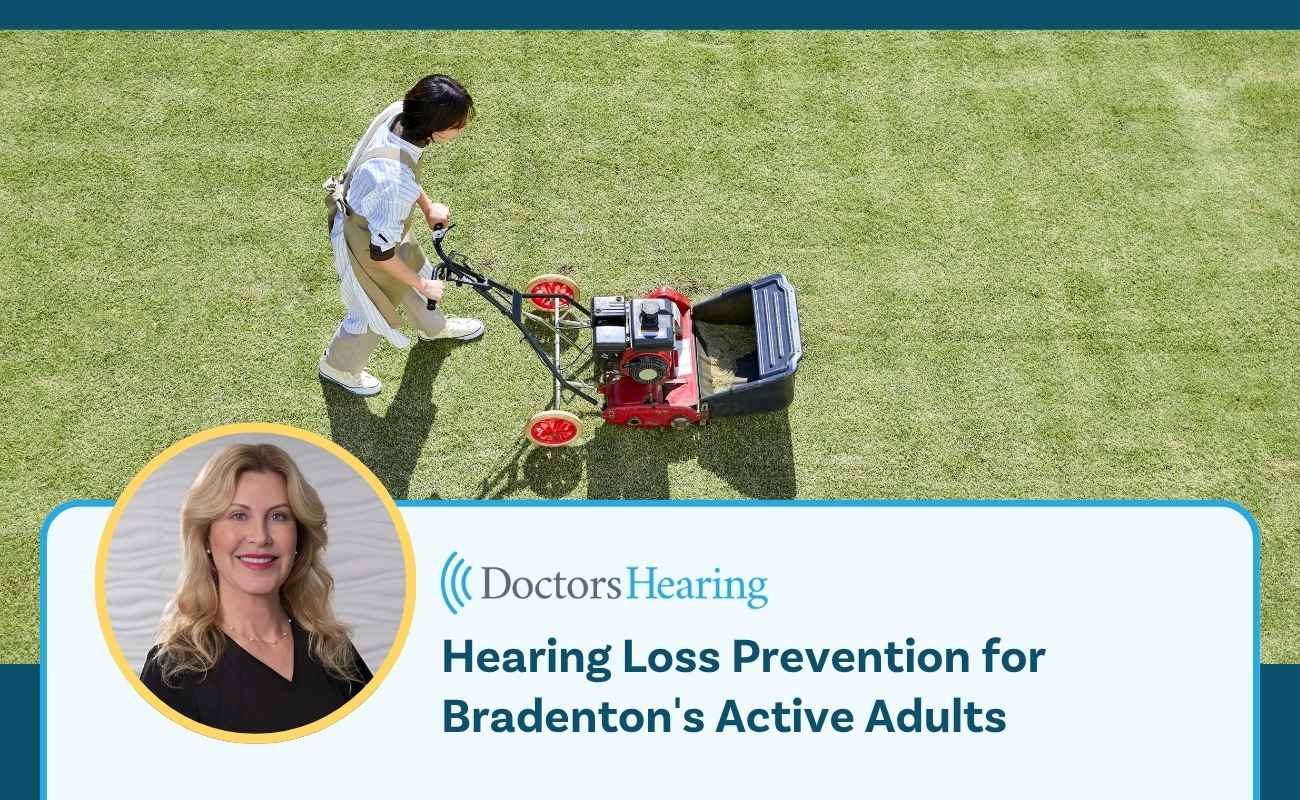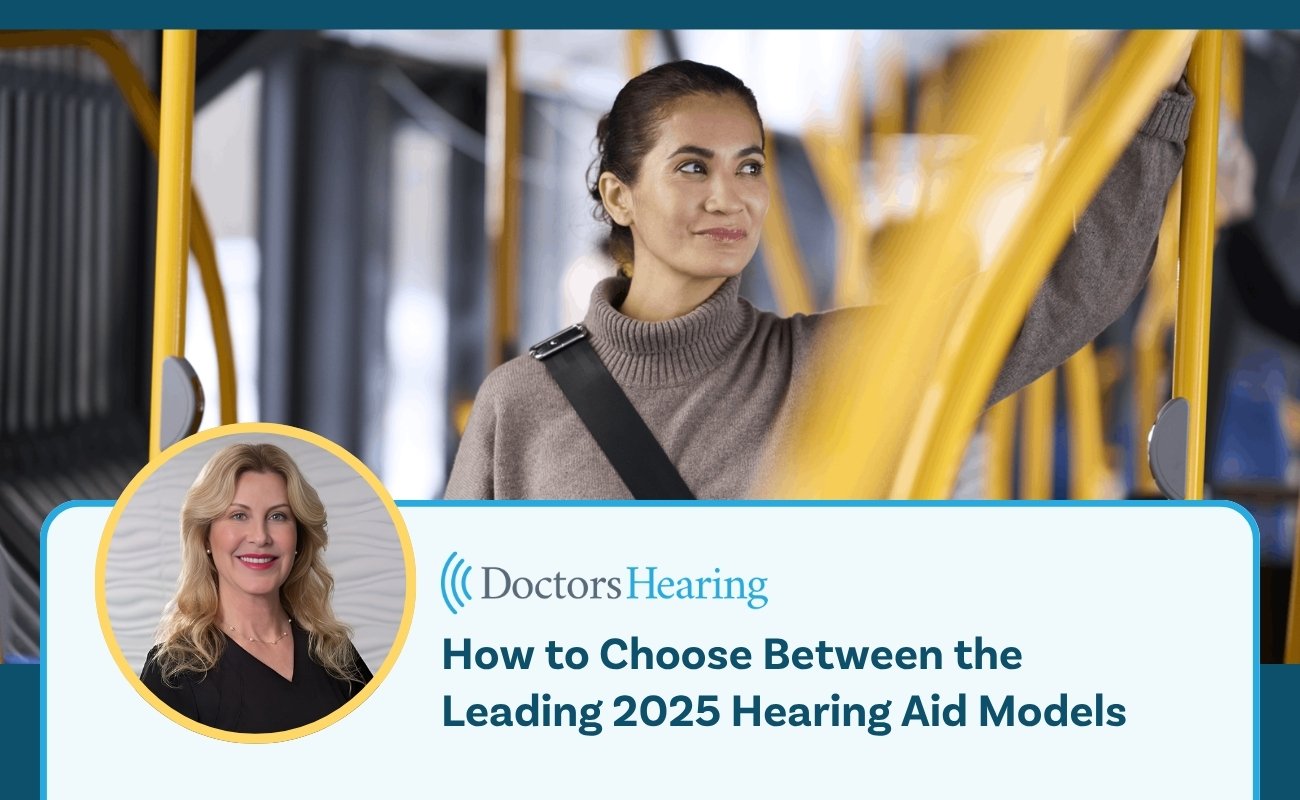

Hearing Loss Prevention for Bradenton's Active Adults
Bradenton's active adults can prevent noise-induced hearing loss through proper protection during recreational activities, smart listening habits, and regular professional evaluations.
Protecting your hearing doesn't mean slowing down—it means staying active longer. For Bradenton's adults who enjoy everything from pickleball at G.T. Bray Park to fishing on the Manatee River, hearing loss prevention starts with understanding which activities pose risks and taking simple protective measures. The good news? Most noise-induced hearing loss is completely preventable with the right approach.
Understanding How Noise Damages Hearing
Your inner ear contains thousands of tiny hair cells that convert sound vibrations into signals your brain interprets. Once these cells are damaged or destroyed, they cannot regenerate—making hearing loss permanent. Loud noise exposure, whether sudden or prolonged, causes these delicate structures to deteriorate over time.
The damage happens faster than most people realize. At 85 decibels (the volume of heavy traffic), you can safely listen for about eight hours. But at 100 decibels (a typical lawn mower), that safe exposure time drops to just 15 minutes. Many recreational activities popular in Bradenton exceed these levels regularly.
What makes noise-induced hearing loss particularly concerning is its gradual progression. You might not notice changes immediately, but years of unprotected exposure accumulate. By the time symptoms become obvious—struggling to hear conversations in restaurants or missing important sounds—significant permanent damage has already occurred.
Common Noise Hazards in Bradenton Life
Living in Florida's active outdoor culture exposes you to more noise than you might expect. Power tools like lawn mowers, leaf blowers, and pressure washers all exceed 90 decibels, putting your hearing at risk during routine yard maintenance. A single afternoon of landscaping without protection can cause temporary threshold shifts in your hearing.
Water-based activities carry their own risks. Boat engines, especially smaller outboards, frequently reach 90-100 decibels. Jet skis are even louder. If you're spending weekends on Anna Maria Sound or exploring the waters around Perico Island, your hearing takes a beating even as you enjoy the sunshine.
Social activities present hidden dangers too. Live music venues, sports events at LECOM Park, and even busy restaurants along the Riverwalk can push sound levels into harmful ranges. The combination of music, crowd noise, and hard reflective surfaces creates environments where sustained exposure can damage hearing over time.
Recreational shooting and hunting are particularly hazardous. A single gunshot can reach 140-170 decibels—loud enough to cause immediate, permanent damage. Even with ear protection, repeated exposure at shooting ranges requires vigilance about proper hearing protection.
Effective Hearing Protection Options
Not all hearing protection works the same way, and choosing the right option depends on your specific activities. Disposable foam earplugs offer basic protection and work well for occasional use like mowing the lawn. They're inexpensive and provide about 20-30 decibels of noise reduction when inserted correctly—though most people don't achieve proper insertion, reducing their effectiveness.
Reusable silicone or flanged earplugs provide consistent protection and last longer. They're easier to insert correctly and more comfortable for extended wear. These work well for regular activities like attending concerts or working with power tools.
For serious protection, over-the-ear earmuffs provide 25-35 decibels of noise reduction. They're ideal for shooting sports, operating heavy equipment, or working in consistently loud environments. Some models feature electronic components that amplify quiet sounds while automatically blocking loud noises—useful for hunting or situations where you need to maintain awareness.
Custom hearing protection offers the highest level of comfort and protection. We create these from precise molds of your ear canals, ensuring a perfect fit that won't slip or cause discomfort during extended wear. For musicians, we can design custom earplugs that reduce volume while maintaining sound quality—something disposable plugs can't achieve.
Custom protection comes in different attenuation levels depending on your needs. Full-shell options provide maximum protection for consistently loud environments. Half-shell versions work well for moderate noise exposure while remaining comfortable for all-day wear. For water enthusiasts, custom swim molds prevent water from entering the ear canal while maintaining hearing ability.
Daily Habits That Protect Your Hearing
Beyond obvious noise hazards, everyday listening habits significantly impact long-term hearing health. Headphones and earbuds pose a major risk because people typically listen at volumes exceeding safe levels. The 60/60 rule provides a good guideline: listen at no more than 60% maximum volume for no more than 60 minutes at a time.
Personal audio devices make it easy to damage your hearing gradually. If people around you can hear your music, or if you need to raise your voice to be heard while wearing headphones, the volume is too loud. Consider noise-canceling headphones that allow you to hear clearly at lower volumes by eliminating background noise.
Taking listening breaks matters more than most people realize. Your ears need recovery time after noise exposure. If you've been at a loud event or working with noisy equipment, give your ears at least 18 hours of quiet before the next loud exposure. This recovery period helps prevent cumulative damage.
Volume awareness extends beyond entertainment. Many people talk on their phones at excessive volumes, especially in noisy environments. Using the speaker function or quality headphones at moderate volumes reduces strain on your hearing and improves call clarity.
Signs Your Hearing Needs Attention
Recognizing early warning signs allows you to take action before significant damage occurs. Temporary ringing in your ears (tinnitus) after noise exposure indicates you've been exposed to harmful sound levels—even if your hearing seems fine afterward. This is your body's warning system telling you to use protection next time.
Needing to ask people to repeat themselves frequently, especially in environments with background noise, signals potential hearing changes. If you find yourself avoiding restaurants or social gatherings because you struggle to follow conversations, don't dismiss this as normal aging—it warrants professional evaluation.
Difficulty hearing high-pitched sounds often appears early in noise-induced hearing loss. If you're missing birds chirping, higher notes in music, or women's and children's voices, these changes deserve attention. Many people don't notice these shifts because they happen gradually.
Perceiving sounds as muffled or feeling like people are mumbling indicates your ears aren't processing speech frequencies properly. If you hear people talking but can't understand what they're saying, particularly when multiple people speak at once, this suggests hearing changes that comprehensive testing can identify.
Getting Professional Hearing Evaluations
Regular hearing tests establish your baseline and track changes over time. Adults should have their hearing tested at least every three years after age 50, or more frequently if exposed to regular noise. These evaluations detect subtle changes before they affect daily life, allowing for early intervention.
If testing reveals hearing changes, we discuss your options based on your lifestyle and hearing needs. Modern hearing aids offer features specifically designed for active adults—water resistance, rechargeable batteries, Bluetooth connectivity, and advanced noise management that makes following conversations in challenging environments significantly easier.
Take Control of Your Hearing Health Today
Your hearing connects you to the people and activities that make Bradenton life enjoyable. Whether you're planning to protect healthy hearing or concerned about changes you've noticed, professional guidance makes a difference. We provide comprehensive hearing evaluations, custom hearing protection, and ongoing support to keep you hearing your best.
Schedule a consultation with our team to discuss your hearing health and protection needs. We'll evaluate your current hearing, identify any concerns, and recommend solutions tailored to your active lifestyle. Don't wait until hearing loss affects your quality of life—prevention and early intervention offer the best outcomes. Contact us today at (941) 795-2811 or visit us at 501 Village Green Pkwy #16 in Bradenton.





